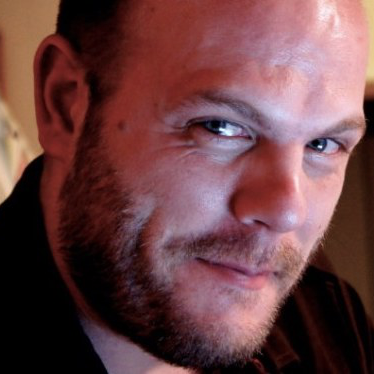#AFtalks Special Edition: Highlight Reel – Freelance, Paid Apps, Women in Tech, App Success

Welcome to our #AFtalks recap!
In this week’s special edition of AFtalks, we rounded up questions and answers from past chats over the last few months. We’ve covered a wide range of topics, from freelance & consulting to app success, and highlighted some of the community’s favorites below.
Our guests range from indie developers to executives who all work in the mobile industry and are experts in their fields. Each week, we interviewed one of them on a chosen topic and asked them for their insights.

Q1: How did you distinguish yourself from other freelancers/consultants?

Brett Terpstra
“Communicate effectively, whether via your website, marketing materials, or one-on-one chats. Communicate your skills, and your ability to listen and make a client feel comfortably heard and cared for. Demonstrating you can listen is not something you can put on a web page, so get some practice.”
Full interview here.
Q2: What are some good practices for communicating with clients?

Brett Terpstra
“Learn to explain yourself in their terms. Hitting clients with your own industry vocab is rarely helpful. Be gracious, especially when dealing with critiques and requests, but don’t be a pushover. If you believe something is not in their best interest, don’t let them change it without understanding the potential downsides. I recommend building a schedule for communication. Don’t be on instant-response 24/7. Train them to wait, because you’ll eventually get a response that’s just infuriating. Sleep on it. Understand it from their point of view before replying.”
Full interview here.
Q3: If you were to start today, would you pick the same (monetization) model?

Quentin Zervaas
“Yes. Interesting story though: originally in Streaks, there were 6 different color schemes you could choose from. We added 6 more, but you could only access them if you shared the app on Twitter/Facebook (in fact, we didn’t actually verify this – you just had to tap the button). Users hated this and it killed our reviews – so we just opened up all of the themes for all users. Users felt like they’d already paid up-front so should have access to all of the app features.
It’s something users are sensitive to and you have to be careful about. Having said that, I think we could have presented this slightly differently in the app to get more of a positive reception.”
Full interview here.
Q4: What are the top three challenges you find most difficult to overcome as a woman in tech?

Vanessa Estorach
“The pole position is for conciliation. I’ve just become a mother and for me, conciliation is a big issue right now. I’m learning that conciliation isn’t something we have to do alone. In fact, the companies we work in should be really involved in conciliation. As a freelance consultant, I have to manage it myself but I see some friends that have a great amount of help from their companies (and others who don’t..). For example, they allow the mothers to adapt their schedule to better match their children. At home, our partner should also help with conciliation. My baby is now 3 months old and I can say that I can be here now because my partner helps me a lot!
There are quite a lot of challenges we face. From all of them, I’d highlight the difference between male and female salaries as the second issue. The salary gap is something that worries me a lot. I don’t really understand why women should earn less if we do the same job. In some positions, it’s something preset but in other cases, we have part of the responsibility: men negotiate better than us when it comes to salaries. In general, women are less assertive in business negotiations.
Finally, I’m pretty worried about the lack of visibility that women have in the tech sector. It’s true that women only represent 30% in this sector but if you check most of the important IT conferences, you realize that we are underrepresented. As Women in Mobile, we contact the organization of some of these conferences and we ask them why they don’t have more women and the most common answer is that they don’t know any. Sometimes finding women in a specific STEM & Tech areas isn’t as easy as opening LinkedIn and doing the search!”
Full interview here.
Q5: What advice do you have for women trying to make a start in the tech industry?

Vanessa Estorach
“The advice I always give is what worked for me: don’t be shy to ask. I wasn’t working in the tech industry but I started to go to different tech meetups. Once I saw something that caught my attention, I asked if I could participate. Thanks to that, I started to speak at different conferences and that led me to get my best customers.”
Full interview here.
Q6: At what stage of an app or game’s development should audio design begin?

Richard Ludlow
“I definitely should have read all of the questions before typing out these answers. :-) But hopefully, this underscores the importance of bringing on sound designers and composers early in the process. Pre-production definitely isn’t too early. Why? Because you can work out your audio tech pipeline and figure out exactly what tech you’ll need to budget for, both cash-wise and time-wise.
That being said, while being brought on early is great, being asked to design sound for animations that are incomplete or not even started can be a huge waste of time. It’s a balance of knowing at what stage to begin work on something so that it does not have to be re-done numerous times. The tiniest animation changes impact audio, so that’s why bringing on an audio team/person early on is best — they will be the person to tell you when they should be beginning work on the different aspects of your game.”
Full interview here.
Q7: How do you determine the appropriate audio for an app/game?

Richard Ludlow
“This is a great question. Sometimes developers come to us with a very specific vision, and other times they ask us to do what we think is best. Either way, we try and get a baseline for what the developer likes, and then extrapolate from there. This usually means providing references and producing concept audio and gauging reactions before diving into complete audio production mode.
Once we settle on a general style, we like to take a step back on projects that have longer production timelines. We evaluate the game as a whole and like to assign three keywords to it— words that we feel embody the spirit of the game and what we are trying to capture with the audio. It’s a little cheesy, but it’s a good litmus test to come back to during the design phase and say “is this sound capturing the essence of these words?” If not, we rethink it.”
Full interview here.
Q8: What was the first success you remember for the app?

Diego Dotta
“In another reflection of our commitment to real outcomes, the first success case was an early user, named Alex. He downloaded the app 2 days after his first big case of anxiety in a social situation and subscribed within 24h of launching the app. After about 3 weeks, he wrote a thank you letter about his story and how Youper helped him.
For us, this was a big success case because studies show that it takes an average of ten years someone to see a mental health care professional (Health Services Research).
We reduced from long 10 years to just 2 days to find help and realized that Youper is a first-responder for mental health issues, like anxiety. Our mission is to make sure that sufferers don’t feel like they have to wait years until they start addressing their condition and start seeing improvements in a short time.”
Full interview here.
Q9: How do you plan on evolving the app and growing its user base?

Diego Dotta
“Our plan is to help people whenever they need support, like your own therapist. We want to be available on smartwatches and personal assistants like Alexa and Google Assistant. Also, we would love to re-internationalize to offer Youper in multiple languages.”
Full interview here.
Check out the rest of the insights we heard today on the #AFtalks hashtag!
A huge thanks to all our past guests and to all those that were part of today’s discussion! Join us for our weekly Twitter chat every Tuesday at 2pm ET (bring your friends!). See you all next week!
Resources:
- Check out all our past #AFtalks interviews